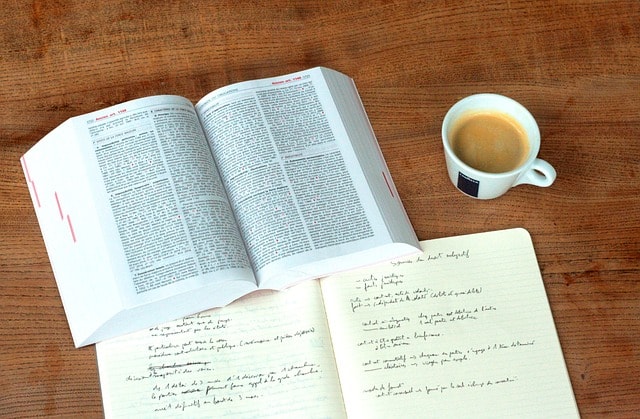Creating a will can feel like just another task on your to-do list. For many, the appeal of a quick, affordable solution—like downloading a will template or picking up a will kit from a local post office or newsagency—is hard to resist. However, while these options may seem cost-effective in the short term, they can lead to significant legal and emotional costs down the line, as illustrated by the recent Queensland Supreme Court case, Sorati & Anor v Sorati [2025] QSC 14.
This case serves as a cautionary tale about the risks of do-it-yourself (DIY) wills, particularly when it comes to ensuring testamentary capacity and avoiding family disputes.
Background of Sorati v Sorati
On 5 August 2021, Renato Sorati, aged 94, used a DIY will kit to create a new will (the 2021 will). Renato, who passed away on 17 January 2023, was married to Robyn Sorati since 1991. He had two sons, Paul and Andrew, from a previous marriage, while Robyn had three daughters from her prior marriage.
In 2017, Renato and Robyn had their wills drafted by their trusted solicitor, Trinity McGarvie. Renato’s 2017 will outlined two scenarios:
- If Robyn outlived Renato, his sons would receive equal shares in a property on Islander Road, Hervey Bay, along with any funds in Renato’s sole investment accounts. The remainder of his estate would go to Robyn.
- If Robyn predeceased Renato, his sons would inherit the Islander Road property, Robyn’s daughters would share proceeds from another property, and the estate’s residue would be divided equally among Renato’s seven grandchildren.
In 2019, Renato and Robyn retrieved their wills after their solicitor was appointed to the bench. In 2021, Renato executed a new DIY will, witnessed by three people, including Robyn. This 2021 will left $50,000 each to Paul and Andrew, with the rest of the estate going to Robyn.
The Legal Challenge
Paul challenged the 2021 will’s validity, arguing that Renato lacked testamentary capacity when he signed it. Evidence included medical records from May 2021 to January 2022 documenting Renato’s cognitive decline, such as memory loss and reduced concentration. A January 2022 medical certificate from Renato’s GP confirmed his lack of decision-making capacity. Witnesses also noted Renato’s hesitation to sign the 2021 will and his apparent unawareness of his prior 2017 will.
A key witness, a retired nurse and Justice of the Peace, recalled explaining to Renato that without a will, the state could claim his assets. This appeared to prompt Renato to sign the 2021 will without further objection.
Testamentary Capacity: What the Court Considered
To determine testamentary capacity, the Court evaluated whether Renato:
- Understood the legal significance of making a will.
- Knew, at least generally, the nature, extent, and value of his estate.
- Recognized those with reasonable claims on his estate and understood their claims.
- Had the mental capacity, free from impairment, to evaluate competing claims.
The Court also noted:
- A properly executed will is presumed valid unless clear evidence suggests otherwise.
- Renato’s advanced age (94) warranted careful scrutiny, though age alone doesn’t indicate incapacity.
- Medical evidence, while relevant, isn’t definitive; the Court considers all evidence.
- The decision is based on the balance of probabilities.
The Court’s Ruling
Justice Peter Callaghan ruled that Renato lacked testamentary capacity when executing the 2021 will. The evidence showed he did not fully understand his estate’s scope or recognize those with legitimate claims on it. The Court also highlighted concerns about Robyn’s potential influence, given her significant benefit under the 2021 will and her presence during its execution. The DIY will’s departure from Renato’s previous practice of using a solicitor further raised red flags.
As a result, the 2021 will was declared invalid, and the 2017 will was upheld.
Why DIY Wills Can Be Risky
The Sorati v Sorati case underscores several risks associated with DIY wills:
- Increased Scrutiny: Courts closely examine DIY wills for signs of incapacity, lack of understanding, or undue influence, especially when significant changes disadvantage certain heirs.
- Invalidity Risks: If a DIY will is deemed invalid, intestacy laws may apply, potentially distributing your estate to unintended recipients, such as estranged family members.
- Costly Disputes: Invalid wills can lead to legal battles, increasing costs for your estate and causing emotional distress for loved ones.
- Lack of Professional Guidance: DIY wills often miss critical legal nuances, leading to errors that can invalidate the document.
The Importance of Professional Legal Advice
While DIY wills may seem like a budget-friendly option, they can create significant problems for your estate and loved ones. Seeking professional legal advice ensures your will is legally sound, reflects your true intentions, and minimizes the risk of disputes. A solicitor can help you:
- Assess your estate and its complexities.
- Ensure your will meets legal requirements.
- Protect your legacy and reduce the burden on your family.
Don’t let a shortcut today create costly complications tomorrow. Consult a qualified estate planning lawyer to craft a will that safeguards your wishes and your family’s future.







